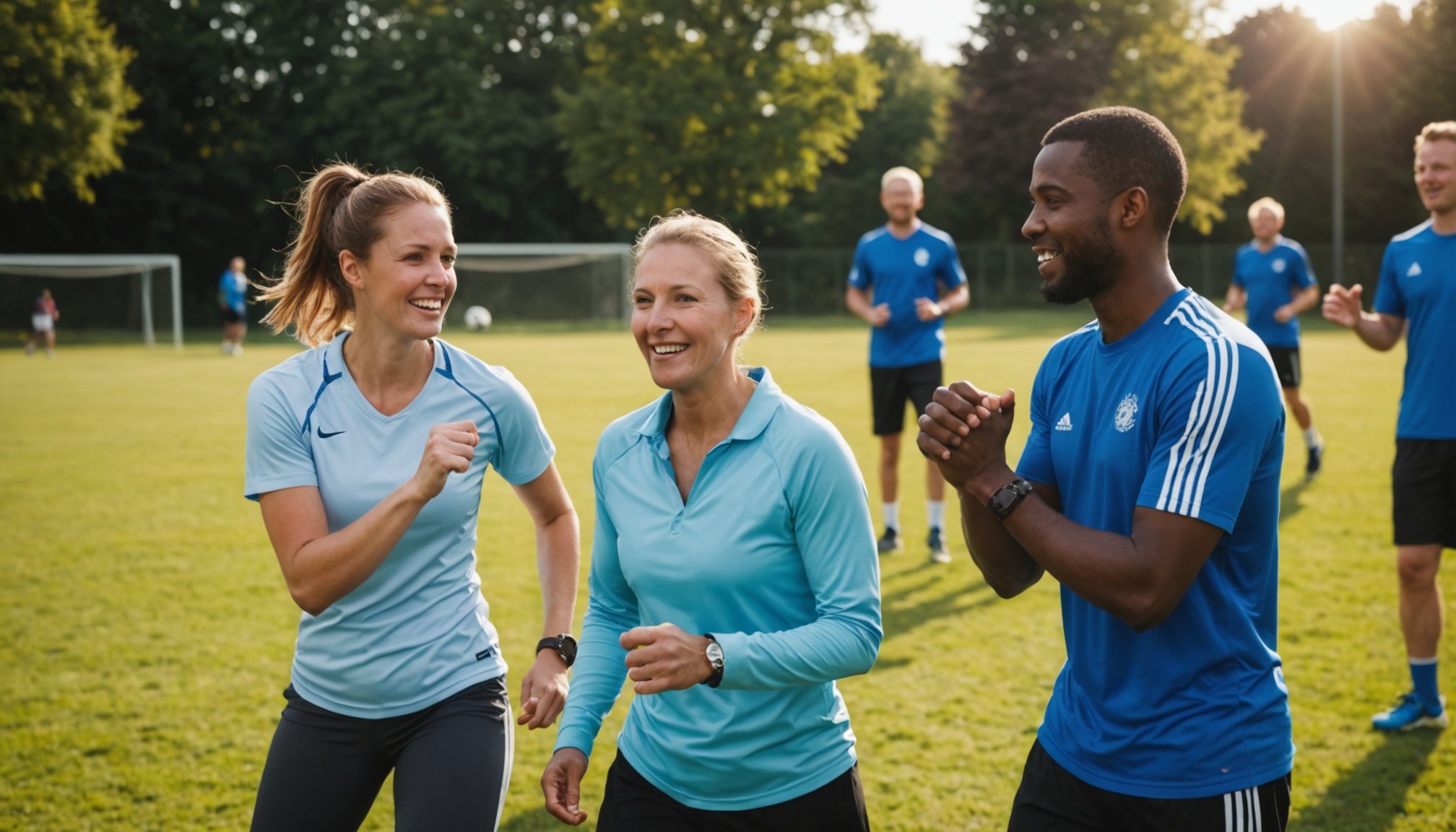The Connection Between Community Sports and Mental Well-being
Community sports play a pivotal role in enhancing mental well-being. In the UK, stress-related mental health issues are on the rise, posing significant challenges for many individuals. Participation in community sports can offer a refreshing stress relief solution by fostering social connections and providing emotional support.
Through engaging in community sports, individuals often build relationships and connect with others, which diminishes feelings of isolation. This social interaction is crucial, as it generates a support system that can alleviate mental strain and offer solace in challenging times. Moreover, physical activity is scientifically linked to reducing stress levels.
Also to see : Essential workouts to improve posture and alleviate back pain for uk office workers
Research consistently highlights the positive impact of regular exercise on mental health, citing the release of endorphins as a natural stress reliever. Physical activities within community sports not only keep participants fit but also contribute to improved mental well-being. Engaging in sports can redirect focus and energy, decreasing anxiety and supporting relaxation.
Given these benefits, it’s no wonder that community sports are lauded as a powerful component in promoting mental well-being and offering a proactive approach to managing stress in the face of escalating mental health challenges.
Topic to read : Discover Mental Sharpness: The Surprising Advantages of Outdoor Rock Climbing for UK Adults
Benefits of Participation in Community Sports
Engaging in community sports has numerous advantages that extend beyond physical health. Firstly, it significantly boosts mental health due to the stress-relieving nature of physical activities. These activities help participants develop resilience and cope with life’s challenges more effectively.
Physical Health Benefits
Community sports improve physical fitness by enhancing cardiovascular health and overall bodily strength. Examples of sports activities include running clubs or football, which not only improve endurance but also decrease stress levels. Improved physical health positively impacts mental well-being, as a healthier body often leads to a healthier mind.
Social Benefits
Participation fosters a sense of belonging and community, which are crucial for mental well-being. Teamwork and camaraderie experienced in sports activities help individuals feel connected and valued, reducing stress. Opportunities for networking and friendship development further enhance this social bond, offering participants a supportive environment.
Emotional Benefits
Physical activities lead to the release of endorphins, elevating mood and combating anxiety and depression. Personal testimonials often highlight the emotional uplift sports bring. Techniques such as focusing on skills or setting sports-related goals can enhance stress relief, making community sports a vital part of holistic mental health management.
Scientific Research Supporting Community Sports
Ample sports research underscores the profound link between community sports and improved mental health. Numerous mental health studies have documented the benefits of participation, highlighting its role in stress reduction, enhanced mood, and overall mental well-being.
In the UK, statistics reveal a positive correlation between increased sports interaction and declines in stress-related mental health concerns. These findings are pivotal in understanding the widespread potential of community sports as a tool for combating mental health issues. Specifically, research indicates improvements in anxiety and depression levels among participants, reinforcing the contribution of sports to mental health management.
Furthermore, specific studies focused on UK demographics shed light on the varying impacts of sports participation, tailoring insights to different age groups and communities. These studies emphasize the importance of targeted programs that cater to diverse needs, maximizing the mental health benefits across the population. However, there remain gaps in current studies, especially concerning the long-term psychological effects of sustained sports involvement.
Future research directions include further examination of these long-term effects and identifying the most effective types of community sports to support mental health advancements. This ongoing inquiry is crucial for building comprehensive mental health strategies.
Local Programs and Initiatives Promoting Community Sports
In the UK, various community programs and sports initiatives actively support mental health by encouraging physical activity. These programs offer a plethora of opportunities, making it accessible for individuals to engage in community sports.
Overview of Local Sports Leagues
Local sports leagues, including popular clubs, cater to diverse interests and age groups across the UK. They offer a wide range of activities, from football to more niche sports, fostering a sense of camaraderie and community among participants. Joining these leagues is straightforward, often requiring online registration or visiting local community centers. These sports not only enhance physical health but also significantly contribute to mental well-being by providing stress relief.
Government and NGO Support
The UK government, alongside numerous non-profit organizations, plays an instrumental role in promoting physical activity. Initiatives from these bodies focus on integrating sports into everyday life, aiming to reduce stress and improve mental health. Many offer funding opportunities for establishing and maintaining community sports programs, ensuring broad accessibility.
These initiatives create a comprehensive support network, allowing individuals to reap the benefits of community sports as a viable mental health resource. By participating, people can effectively manage stress while building robust social connections.











